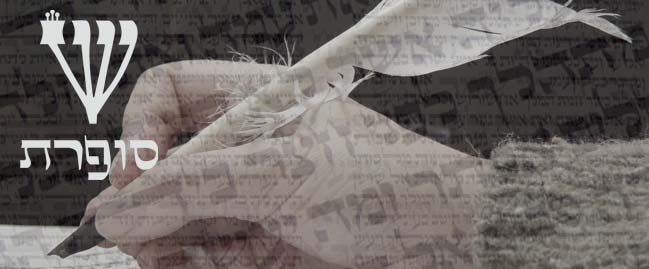SLEPT LIKE LEVIATHAN BEFORE THE END TIMES
בס"ד
Shabbat July 23/16 Tamuz Parshat Pinchas
After davenen & lunch, I had a talk & a stroll with R' Naomi Steinberg, who is all sweetness & light, all the time. I floated on to a talk with Safa, the Kallah housing co-ordinatrix. We had a long, deep conversation about Americans of Iranian heritage (which she is) who really are just secular Americans & nothing to be afraid of. Innocent people of colour & innocent Muslims becoming second-class citizens, too. This Patriot Act extension is a frightening step toward a neo-fascist state which must be stopped.
Reb Zalman's lecture consisted of much Yiddish & Hebrew which he spoke to the graves of the Ba'al Shem Tov, the Maggid of Mezritch, Reb Nosson, Rebbe nachman of Bretzlov, & other tzaddiqim (saints) who shaped the future of Judaism in beautiful holy ways. He'd recently returned from a trip to Russia, you see, & had much to share about his experiences at the graves of these holy men.
He also recommended that we make our Judaism less racist, for example, we should delete instances in our liturgy where we basically say in Hebrew, "We have the Torah & the Goyim don't! Nahnah-nah-nahnah-nah!"
That is a direct quote.
All this was followed by yet another teacher meeting where we chose our "Spirit Buddies". These partners for the week are meant to help each other process the very intense & hectic experience which is Kallah. It works. We should all have Spirit Buddies in our everyday lives.
At shalosh seudos (the third meal of Shabbat), Reb Mordechai told his story about the first time he met the Dalai Lama. There was a gathering of holy people from all over the world, of every faith, & they came to Dharamsala to meet with the Dalai Lama & each other to learn & share. Toward the end of the week, all these priests, ministers, imams, etc were holding hands & praying in a circle, hearing the words of the Dalai Lama. He smiled & said, "Israel & Jews - very hard. Mordechai - very easy."
Naturally, R' Gafni was inspired to hand his kipah (yarmulke) to the Dalai Lama & say, "You think it's so easy? You try wearing this all the time."
So he did. All the rest of the time he spent teaching during this retreat, he wore R' Gafni's kipah. He got the message.
At the end of their time together, R' Gafni gave the Dalai Lama as a gift a tallis. He accepted it enthusiastically & wore it around, saying, "Look, I'm a Jewish Buddhist!"
:D
Just before the birkat (blessing after the meal), Neila Carlebach told a story in the name of her late husband, R' Shlomo Carlebach z"l, about how Kozbi & Zimri were a new gilgul of Dinah & Sh'chem. & then later R' Akiva & Rachel, when they did tiqun. I'd never heard this drash before, & it left me thinking that they must not have completed their teshuvah, because his life was ended Romans skinning him alive.
Joel & I chatted with R' Mordechai after & he regaled us with tales of his jet-set teaching gigs. "Yer the next Jesus", I exclaimed, to which he answered, "Well, when that happens you know they'll just end up trying to crucify you."
& He had this wise thing to say about Competition: There's room for everybody.
Ameyn selah.














2 Comments:
A comment on liturgical changes, re: Reb Zalman's recommendation "that we make our Judaism less racist, for example, we should delete instances in our liturgy where we basically say in Hebrew, 'We have the Torah & the Goyim don't! Nahnah-nah-nahnah-nah!'"
I agree--but then the question remains: what should we do instead? Do we simply omit text that we find problematic? Do we use alternative formulations? If so, where do we get them from: create new ones to fit into the liturgical structure, or turn to other places in the tradition for phrasing that would be appropriate?
I tend to favor the latter, though I am often interested in the texts created by those who favor the former. One of the members of our minyan who has a strong Reconstructionist bent (Professor Leslie Brisman) put together some liturgical alternatives for a Shabbat service celebrating his 60th birthday last summer, many of which have been incorporated--alongside both the more traditional text from _Siddur Sim Shalom_ and other new formulations--in an "alternative siddur/siddur of alternatives" called _Shema Kolotenu_ (taking the traditional liturgical phrase "shema koleinu" but making the noun plural, to emphasize that we speak with many voices).
One of the sections of the Shabbat morning liturgy that he considered most disturbing--the one that pretty much says what Reb Zalman criticized--is the "v'lo natato" paragraph of the Shabbat morning amidah. So Leslie wrote an alternative paragraph that preserves the same Hebrew words as the opening of the text but offers a different set of contrasts in its praise and appreciation of Shabbat, which he translated thus:
"You have not granted this day, Lord our God, to make it difficult for us, and not to torment our flesh; You gave it rather for Freedom—for a sign that every person deserves an opportunity to work in good time and to rest in good time. For every woman and man was created in the image of God, who in six days created the heavens and the earth, but on the seventh rested and was rejuvenated."
(I would be happy to get a copy of the Hebrew to anyone who's interested--you can e-mail me at miriyab[at]yahoo[dot]com--but I don't have it as a Hebrew text to paste in here, unfortunately.)
Because I share his and Reb Zalman's sense that the existing paragraph does not reflect the ideals of the Judaism that I treasure, I have not used it in my private davening or from the bimah for over a year now. But I have also come to prefer a different solution to the problem, particularly when acting as shatz. Instead of using Leslie's new formulation, I return to an earlier point in liturgical history, when all of the Shabbat amidahs shared the "Yismechu" paragraph in this position (now found in the musaf amidah--though you see traces of the origin in the existing "v'lo natato" paragraph, which still ends the same way). It celebrates the joy of Shabbat for those who observe it in a purely positive way, without the negative comparison that is inherent in any "v'lo natato" formulation, whether it chooses to rejoice in the fact that _we're_ better off than 1) the goyim who didn't get the Torah (traditional) or 2) the over-punctilious frummies who miss the point of Shabbat (not what Leslie meant, but a meaning that I think could be read into/out of his formulation).
Other sections of the liturgy that have come in for scrutiny on this point are some phrases in the opening sentence of the Aleinu (which many progressive/liberal siddurim change) and other places that emphasize our chosenness, particularly when depicted as being chosen _over and against_ others who are not chosen (e.g. "asher bachar banu mi-kol ha'amim," who chose us from among all peoples, in Torah aliyah brachot and elsewhere). I've seen a wide variety of ways of dealing with these particular formulations & would be happy to discuss them with others.
But however one chooses to deal with problematic liturgy--by substituting newly-created text, by substituting other text drawn from the existing tradition, by reinterpreting metaphorically language that would be objectionable when taken literally--the first step comes in looking with clear eyes and determining what parts of the existing textual tradition may, in fact, give support to goals or conceptions that we would not choose to affirm.
בס"ד
Wow, Becca! Thanks for commenting!
My feeling is that we use alternative formulations from our tradition to express our sense of chosen-ness without putting other human beings (also created b'tzelem Eloqim) down.
I mean to say, if one of the things we must all, as a community, beg forgiveness for during the Vidui is xenophobia, then why on Earth would we perpetuate the use of xenophobic language in our liturgy?!?!
Very interesting about the "Sh'ma Koloteynu" idea. Remidns me of the use of "Kadmeynu" instead of "Avoteynu" in the Amidah...
I think that since it is possible to be pro-female without being anti-male (for example) that we should focus on the blessings we have rather than how we consider ourselves superior to others or how we deem others lacking. It makes for a healthier tribe...
Post a Comment
<< Home